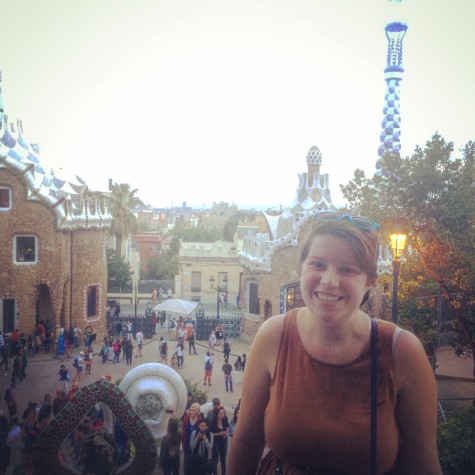“Whoops” – Making Mistakes
Draft. Reread. Edit. Read. Edit more. Read, reread, reread. Edit, edit, edit. Read. Have someone else read it. Drive yourself crazy as the words on the page become ingrained in your mind. You re-arrange a sentence three times. It ends up being one word different from what you started with. You start imagining commas where there shouldn’t be any. You get to the point where you have to force yourself away from the page because you’re no longer reading the words but reciting what you know is there. You see the words when you sleep at night. You hear them when you’re eating lunch.
You become your story. Your story becomes you. When it goes to print and you finally see it, immortalized in all its glory on the black-and-white pages, you breath a sigh of relief…even then it’s not perfect.
It’s usually not until the third or fourth time that I read my story in print that I’m finally happy with it. Never do I ever think I’ve reached the perfection I was striving for, but usually I reach a point of satisfaction and I can file the story away and move on.
Unless I made a mistake. Last week, I made a mistake.
A week later, it still haunts me. I still cringe at the thought of it. I’m in a state of permanent discomfort just writing this blog as I think about it over and over again. Too dramatic? Am I overreacting? Maybe. But I think if you ask any number of professional journalists if they ever made a mistake in a story, I would bet good money that if they ever did, they would still remember exactly what it was and how they felt.
I’m not talking about a grammatical mistake like missing a comma. Punctuation and grammar has never been my strength and it’s a skill I’m continuing to develop. Don’t get me wrong, it still jars me if I read a finished story and find a grammatical or stylistic mistake. But unless it’s a mistake I’ve made repeatedly, then I don’t usually lose sleep over it.
Last week I left out an entire country from my story.
Let me clarify. Last week I wrote an article for the new International page for The Campus. In it I explained where all the international students come from, why they are here and how they found Allegheny. One group of these students are the teaching assistants. There are six of them and last week I left one of them out of my article.
When Friday morning came I grabbed a copy of The Campus as soon as I could. Blissfully unaware, I sat down and read my story. I then super proudly advertised it to all the international students on Facebook. “Go look at the article about you guys,” I said. “Look you’re all famous,” I said. I didn’t even pick up that anything was wrong with it. The Spanish teaching assistant then contacted me, telling me I’d left Spain off the list of where the teaching assistants come from.
No? What? Don’t be silly? How could I forget a country?
But sure enough, I read through my story again and there it was. China, Germany, France, Brazil, Yemen but no Spain. It was heartbreaking. I was lucky enough to be able to email the editor of The Campus and have it immediately fixed on the online copy. So if you read the story online, Spain will be there. But any print edition, there’s still one teaching assistant missing.
As striving journalists we are taught to be meticulous. To pay attention to details. We know as humans that we are not perfect, but we aim to get as close as possible. I don’t know how many times I went through my notes to make sure that I had all the numbers right. I read through my story more times than I can count. I checked for flow and spelling and commas and punctuation. But somehow I still made a mistake. It was an honest mistake, completely unintentional but nonetheless I will never ever forget it. It was the first real time I ever stuffed up in an article and I really hope it was the last.








Kathy Roos • Nov 14, 2014 at 2:58 pm
You’re not alone, Meaghan! No matter how hard we try not to, journalists make mistakes. The important thing is to acknowledge our mistakes (but then move on).
I covered a school board meeting as a young reporter, and the discussion turned to funding for one of the cheerleading groups. Every time someone mentioned the group’s name, I heard Wrestler Rats. But the next day as I was writing the story, it worried me. Wrestler Rats? Really? Their cheerleaders are called Wrestler Rats? I worried so much that I called the school board secretary.
“So the cheerleaders are called Wrestler Rats?”
“That’s correct. They’re the Wrestler Rats.”
“Okay … so they’re the Wrestler Rats? I just want to make sure.”
“Yes, you’re right.”
The day my story appeared I got a call from several irate mothers. How dare I call their daughters Wrestler Rats? Turns out that every time someone was saying “Wrestlerettes” I was hearing “Wrestler Rats.” And every time I said “Wrestler Rats” they were hearing “Wrestlerettes.”
Communication is hard. But it sounds like you really care about getting it right. And that’s going to serve you well. I enjoy your posts!
Cheryl Hatch • Nov 19, 2014 at 7:08 pm
Ah, Kathy, I love that story. Like the commercial for “fraud protection.” One guy is talking about “frog protection.” And the other confirms “fraud protection.” Thanks for following the blogs.
Sam Stephenson • Nov 13, 2014 at 11:15 pm
I thought this post was great, Meaghan. Copy editing seems to be a lost art. Especially with everything seemingly online now, it seems the goal is how fast people can get information out and not so much the quality. Quantity vs. quality. It is too bad because copy editing is so important in everyday writing.
Cheryl Hatch • Nov 13, 2014 at 11:46 am
Meaghan: I enjoyed reading this piece. It’s great that you’re willing to own your mistakes–and strive to do better. I appreciate the way you tie what we discuss in class to your blog posts. Yes, professional journalists make mistakes. I have a couple that haunt me.